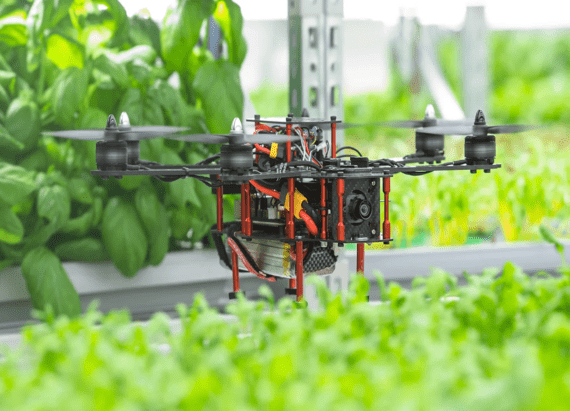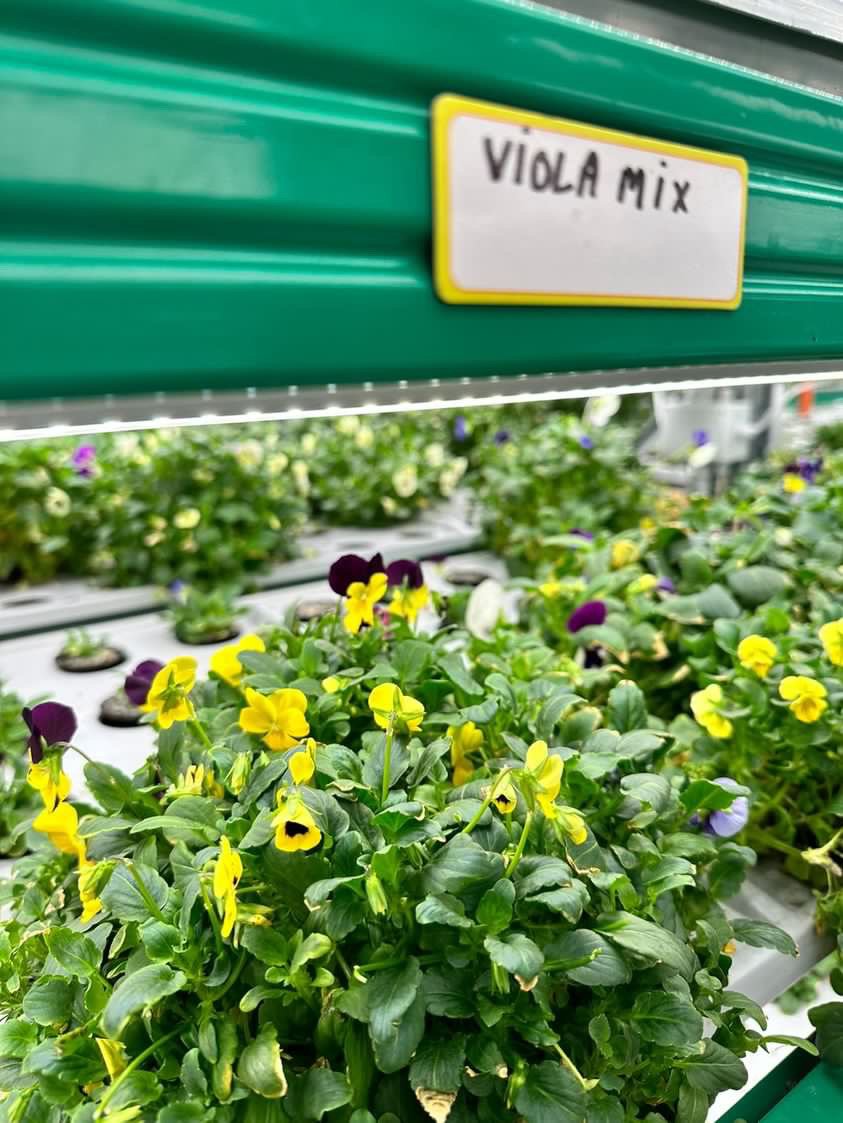Mar 29, 2023
Bringing the Freshest Salad Greens to Saudi Arabia with Bather Smart Farm

Bather’s microgreens are grown vertically to maximize yields. Credit: Bather Smart Farm.
Written by: Sarah Jordan
March 29, 2023
In Riyadh, Saudi Arabia’s capital city, Khalid Shokair and his family have established Bather Smart Farm, a 2500-square-meter facility that grows microgreens, edible flowers, salad greens, and herbs. They are pioneering vertical farming in the region and operate the first smart farm of its kind in Saudi Arabia. Khalid and his family got their start through Agritecture Designer, where they modeled different scenarios and crops and even contacted pre-vetted suppliers through our Partner Network.

Shokair, a self-identified salad lover, first came up with the idea to open his own vertical farm after growing greens in his house. He started small but eventually scaled up and had enough produce to share with family and friends. They loved the fresh, quality greens Shokair was able to produce in his home.
A geologist by trade, Shokair found Agritecture’s website and stumbled upon Agritecture Designer. He learned about the industry with our Commercial Urban Farming course and then had multiple discussions with our consultants about how to best execute his ideas. He also ran many scenarios on Agritecture Designer’s farm modeling tool, testing out farms with tomatoes, strawberries, and salad greens, among others.
After Shokair had decided more of the specifics about the farm’s design and capabilities, the Agritecture team connected him with suppliers to make his idea a reality. They have faced many challenges during the planning process, one of the main challenges being the local population’s misunderstanding of vertical farming. Finding skilled labor with an understanding of CEA cultivation has been difficult, as has finding construction companies with experience in or knowledge of the vertical farming space. Plus, since many suppliers are located outside of the GCC, communication has been a challenge as well.

Credit: Bather Smart Farm.
Bather Smart Farm has overcome all of these challenges, and they have been in operation for two months now. Currently, their biggest challenge is educating the local population about the value of their products and of vertical farming as a whole. They are making headway in this regard and are successfully operating and selling to locals but also supplying chefs.
Chefs in the area love Bather Smart Farm’s produce because it is fresher than imported goods. Plus, since the greens and other produce do not have to be shipped as far, there is less of a chance of damaging the goods in transit. Even more importantly, the greens are cheaper than comparable imported vegetables. Local production allows Shokair to offer higher quality greens at a lower cost, which benefits all parties involved.
Some of their products are relatively unfamiliar to the market they’re selling in, such as edible flowers and microgreens. As a result, they are trailblazing the distribution and production of these goods in the area, allowing them to introduce novel produce into the market.

In Saudi Arabia, around 80% of produce is imported from other countries. Shokair is proud to provide local produce to his community, and as his son, Abdullah, said: “That’s the magic of vertical farming.” They hope to make fresh produce more widely available in the area with their farm.
In the future, Shokair and his team hope to make their product less costly and more widely available to the Saudi public. Shokair said that some consumers in the market are skeptical of the greens because of a preconceived notion that they are too pricey, and he is looking to confront this misconception head-on. Shokair wants to expand his distribution to schools and hospitals as well as even more local families. He believes that everyone should be able to access these superfood greens for each and every meal, just as he does. There is a bright future ahead for Bather Smart Farms, and Agritecture is proud to be a part of their journey.
Want to hear more about the farm and Shokair’s journey? Check out this interview our founder and CEO, Henry Gordon-Smith, conducted with Shokair and his son.
